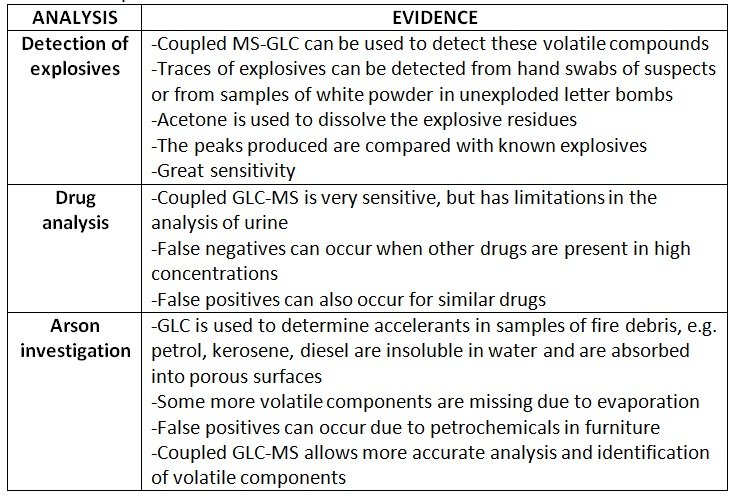Forensic Chemistry > 5. Much forensic evidence consists of very small samples and sensitive analytical techniques are required > How Analytical Techniques Provide Evidence About Samples >
Analyse and present information from secondary sources to discuss the ways in which analytical techniques may provide evidence about samples
- Chromatographic methods, such as GLC and HPLC, operate on the same principle as extraction. However, one phase is held in place whereas another phase moves past it. These methods are deemed helpful in separating samples in mixture form.
- Mass spectrometry (MS) can be coupled with chromatography to provide useful information for forensic analyses. MS can be highly selective for the analyte of interest. This kind of selectivity provides greater ease in sample preparation and complete chromatographic separation of components in a sample mixture.

